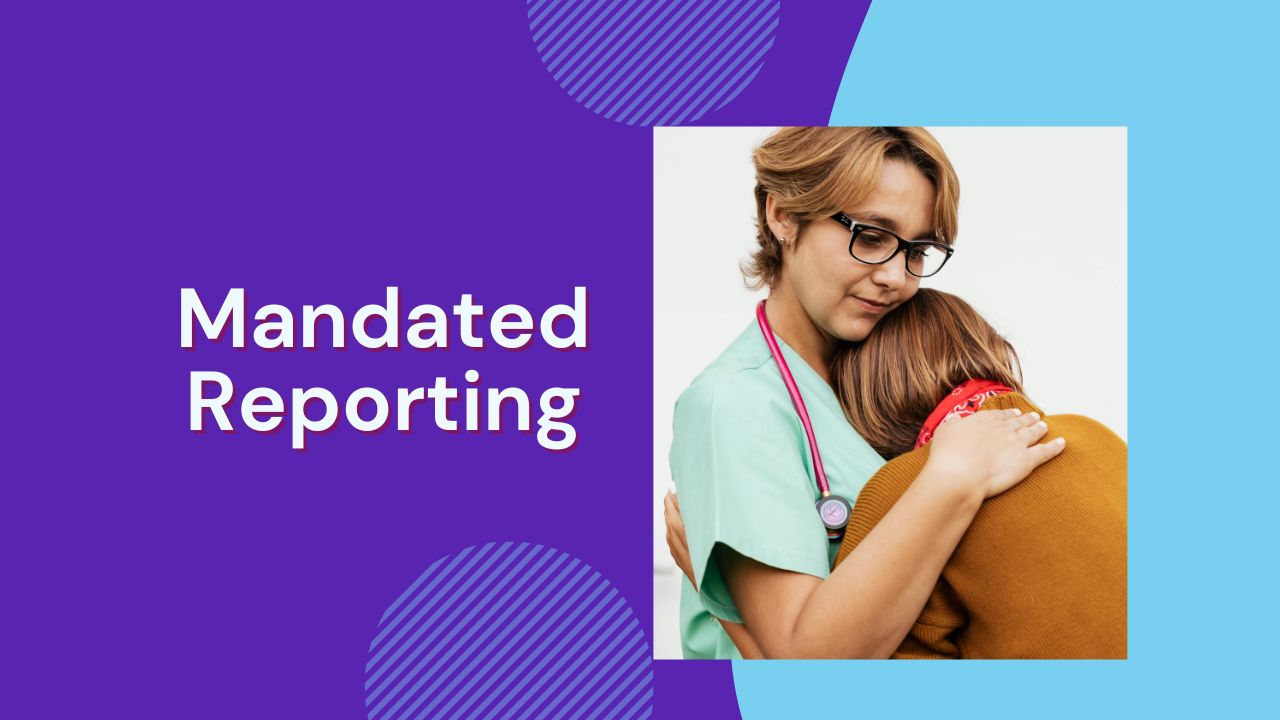Have you ever wondered if PRN shifts are right for you? As a nurse, you've probably heard that PRN jobs have high pay rates or that per diem nurses can choose their own schedules.
On the flip side, you may have also heard some downsides or even myths about this type of work and might be worried about starting a first shift.
You need to find the correct information with all the pros and cons detailed and explained to you. This article presents topics about PRN jobs, pros, cons, definitions, how to become a PRN nurse, taxes, the facilities' point of view, and more. Keep reading to find out more information that may lead you to pick up your first per diem job.
What Is a PRN Nurse?
First, let us define the meaning of PRN or per diem. PRN (pro re nata) and per diem refer to the same type of work, even though they have different meanings. PRN is a medical term that means "as needed," and per diem means "for each day." Overall, both terms describe a type of work in which healthcare professionals pick their shifts within healthcare facilities instead of having traditional schedules with said facilities.
Notably, a PRN nurse or nursing assistant will work these shifts when facilities need them, and they can effectively create their own schedules.
Benefits of PRN Nursing
First, let us begin by saying that from the moment a nurse takes a PRN shift, they usually want to stay as independent contractors, given that there are plenty of advantages to PRN nursing. Interestingly, healthcare facilities feel the same way. Some reasons for loving PRN shifts are as follows:
1. Flexibility and Choice
PRN nurses choose their schedules and can request shifts—or not. This flexibility works well when they need a few days off for personal reasons. They can arrange their work life around their personal life. With the possibility of setting their schedule, they will feel less stress and thus be able to provide better care for their patients.
2. Competitive Pay Rates
PRN nurse salaries or annual incomes tend to be higher because healthcare facilities don’t pay any benefits and urgently need their shifts covered. Overall, it is a win-win situation because the facility can save money by only paying a higher amount for the needed shift, and nurses earn a higher-than-average hourly wage.
Nurses love the high rates offered by PRN nursing jobs, as occasionally, they get twice or more than what they might have made in the same facility working in a staff position.
3. Get Hands-on Experience with More Facilities
One of the several significant advantages of PRN work is the extra experience a nurse gains by working in different areas. Another way of putting it is that nurses will have various jobs, as they will often change facilities and work settings. With so much change, nurses can get more experience and become more adaptable in multiple areas, which is a significant advantage for the healthcare facilities looking for them.
4. Work-life Balance
Choosing their schedule enables nurses to balance their work and personal lives. Nurses can put family, friends, and hobbies first and always have enough time for work. Not to mention, PRN nursing jobs allow them to earn more money and work fewer hours.
5. Nurses Can Keep Their Current Job
Nurses might think that PRN nursing is not for them, but they can choose a staff position whenever they like. Nurses can also work some PRN shifts independently without leaving their current jobs. Read about some common PRN FAQS here.
Drawbacks of Working PRN Nursing Shifts
Of course, there might be some disadvantages when working PRN jobs:
1. Facilities May Not Always Have Open PRN Shifts
Nurses might have periods with little work, but they might also have periods with a large amount of work. Pro re nata nursing implies becoming more organized and actively seeking shifts. Nurses sometimes will need more than the desired quantity of work they need. But, with the nursing shortage present in the country, there is an excellent possibility of this never happening and them always finding enough shifts. Furthermore, with Nursa, they will have the possibility of finding jobs within a reasonable distance.
2. Taxes and Employment Benefits Work Differently
PRN shifts won't get nurses employment benefits, so they must manage their taxes as self-employed nurses. Although it seems like a large amount of work, it's pretty straightforward, and once they get the hang of it, they can earn plenty more as PRN nurses.
3. PRN Nurses Must Proactively Create Their Own Schedules
Despite choosing their schedule, nurses must remember to schedule shifts in advance so they never run out of work due to poor planning. In a way, PRN nurse shifts help them be more organized. One tip to create a schedule is to have a planner with their desired activities and know their availability and preferred shifts in advance so they can look for shifts on their mobile devices whenever they have some free time. Some facilities might like a nurse's work and ask them to return.
Despite the few drawbacks when working PRN shifts, the benefits surpass the cons, making picking up per diem jobs a solid career choice.
Why Healthcare Facilities Use PRN Staffing Solutions
As mentioned before, healthcare facilities also love PRN nursing. Here's why:
1. Address Short-term Staffing Shortages
Numerous factors have increased the need for nurses nationally, leading to a generalized shortage of nurses that affects healthcare facilities in the region. Nursing licenses have a projection of growth that surpasses the expectations of other professions. For example, registered nursing jobs will increase by 200,000 annually for the next two years.
2. Reduce Their Reliance on Staffing Agencies
Healthcare facilities and healthcare administrators feel grateful to find enough nurses on time. Once in a while, they must pay extra money to cover a shift. Not covering a shift in time leads to plenty of stress in management. The upside for healthcare facilities utilizing digital tools is that they rely on something other than staffing agencies.
3. Find Qualified Nurses Across Numerous License Types
PRN jobs are available in most specialties for various types of clinicians. Due to the ongoing nursing shortage, per diem nurses work in virtually every kind of workplace and specialty.
For example, some nursing licenses they might find with Nursa include the following:
- RNs: Registered nurses
- CNAs: Certified nursing assistants
- LPNs: Licensed practical nurses
- CGs: Certified caregivers
- QMAPs: Qualified medication administration personnel
- GNAs: Geriatric nursing assistant
Furthermore, acute care facilities can find all kinds of PRN RNs with different areas of specialization.
What Does a Typical PRN Nursing Shift Look Like?
While per diem nursing involves the same work as a regular staff nurse, nurses will find that their days are filled with variety, as they will sometimes work in different facility types. The majority of days as a PRN nurse will involve:
- Showing up at the designated time
- Checking in
- Getting assignments for their shifts
- Completing nursing tasks
- Filling out the shift reports
The nursing tasks and the type of license a nurse has will vary from one kind of facility to another. For example, nurses might need extra explanation or introduction to the systems in some facilities.
What Do I Need to Become a PRN Nurse?
Any nursing professional with an active license won't need extra qualifications to become a PRN nurse. Nurses can look for PRN jobs if they have an updated license in the state where they want to pick up shifts.
With Nursa, nurses can get all the advantages of PRN nurse jobs by creating profiles and uploading their licenses. Once a license is verified, nurses can find high-paying jobs in the area.
Furthermore, as PRN nurses, they will be helping the patients who genuinely need them. Healthcare facilities are looking for nurses and are willing to pay more because they need PRN nurses. Therefore, working PRN as a nurse offers plenty of advantages.
If you were looking for more reasons to get started, you have no excuses left. Start your journey today: pick up a PRN shift.











.jpg)

